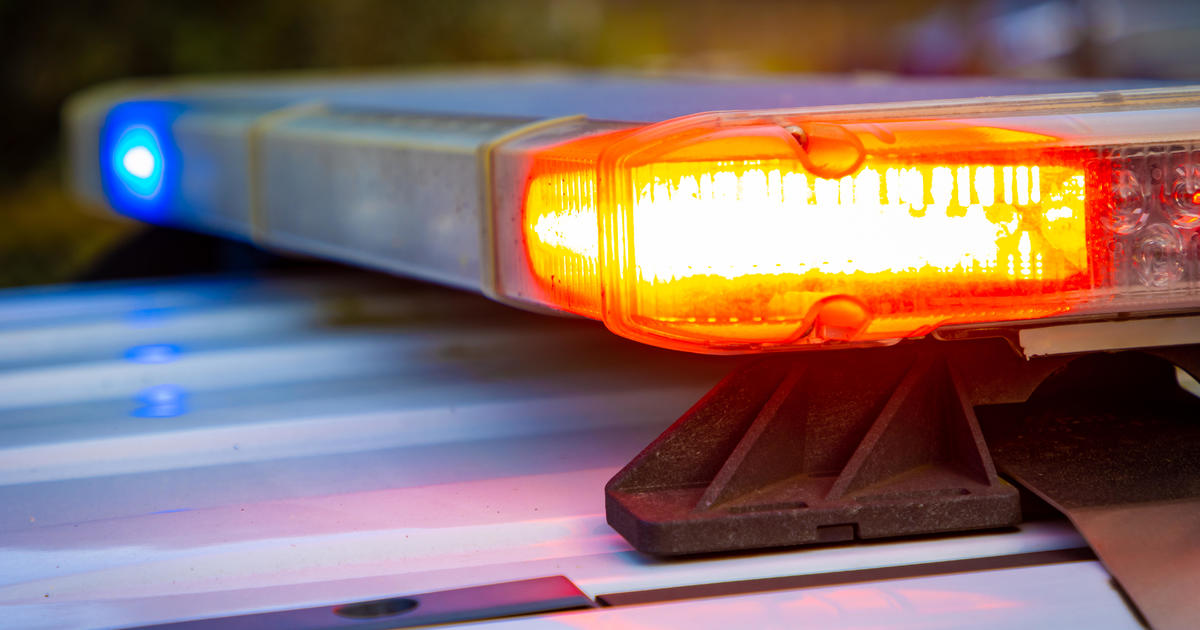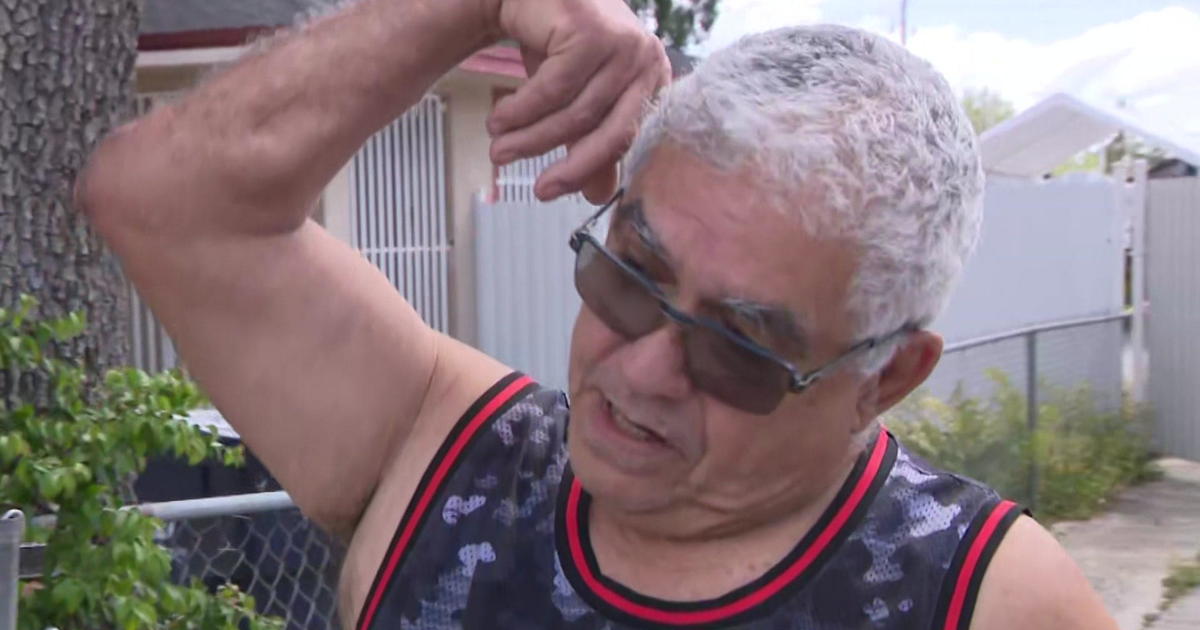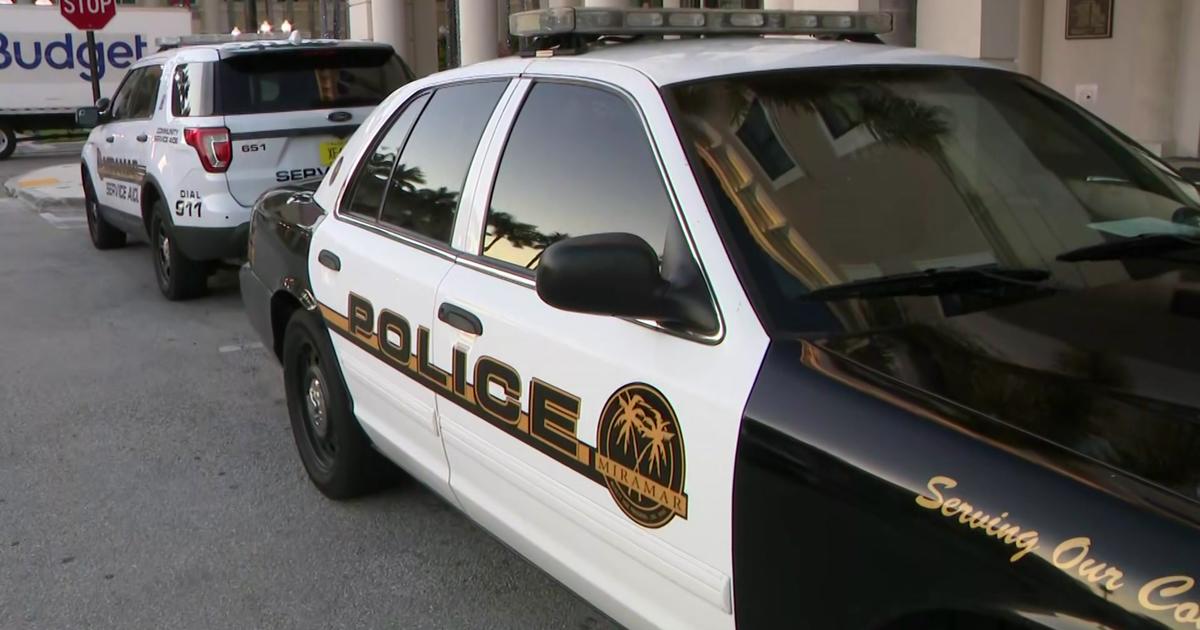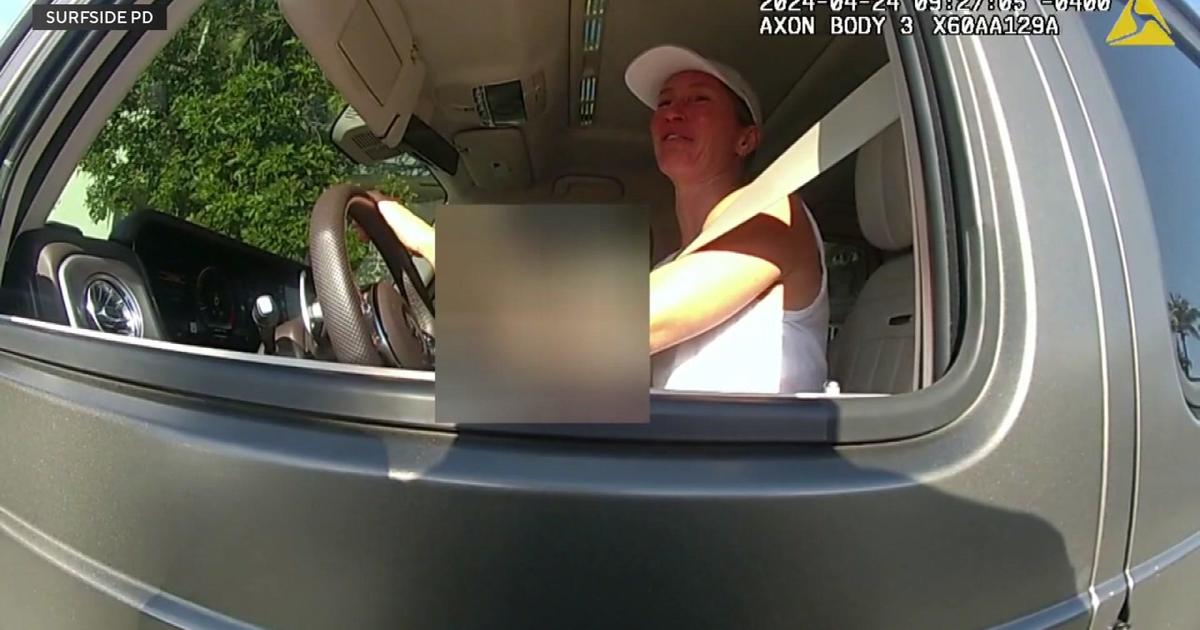Community activists call for change after Miami police shot man with mental health concerns
MIAMI - A week after Miami police officers shot a man in the middle of a mental health crisis, community leaders and neighbors are rallying for change.
The Healing and Justice Center, a coalition of community activists made up of groups like the Circle of Brotherhood and Dream Defenders, said the shooting of Donald Armstrong is proof that police are not trained to respond to mental health crises.
"Our hearts are with the family, our hearts are with Ms. Armstrong, what happened last week was something no mother, no family, should ever have to go through," said Rachel Gilmer, Director of the Healing and Justice Center.
Gilmer told CBS News Miami's Peter D'Oench, "What if instead of just funding police they also funded conflict mediators and youth mentors and de-escalators, We are calling on the mayor to fund community-based policing, to fund the work of people who go out into the community."
Brother Lyle Muhammad, Director of the Circle of Brotherhood, said "Police should not be the first ones to respond to a mental health crisis. Had this team been there we would have properly assessed the situation."
Olivia Walker of the Healing and Justice Center said "We desire to solve community problems. Not everyone is trained to do that."
She said police are socialized to see every call as a potential threat and when they are called to the scene, they treat it as law enforcement officials, not as mental health experts.
Miami police said on March 7th, just after 2 p.m., officers were sent to 5703 NW 7th Court after they received a report about a man possibly high on drugs who was acting erratically.
When officers arrived they encountered Armstrong, who police say was acting aggressively.
In a video obtained from witnesses, you see Armstrong has a sharp object in his hand and you hear police using their stun guns on him twice. Family members would later say the sharp object was a screwdriver.
On the video, as this was happening, Armstrong's mother can be heard pleading with officers not to kill her son.
Approximately 10 gunshots can then be heard. Witnesses describe the moments they heard the gunfire.
"They tased him twice. I guess that's not what they wanted. They didn't see the reaction they wanted so maybe like 10 to 15 seconds later the squad of police began to fire," said Preston Baldwin, a witness.
Miami police said this was the best option for everyone's safety as he was not listening to orders.
Armstrong, who was shot seven times, was taken to Jackson Memorial Hospital where he is in critical condition.
"They shouldn't have done it. If he was falling, why you gonna shoot the man if you Tased him already? They shouldn't have shot him, he was falling," said Armstrong's aunt Diedre Crumity.
"I want to get to the bottom of why, why did you have to shoot him that day if you Tased him? And then you Tase him again and shoot him while you're Tasing him. That's not fair," she added.
She also told us, "I am so upset about it. I could not go to work for two to three days. He was my favorite nephew. He did not have a gun or a knife."
Following the shooting, Miami Chief of Police Manuel Morales issued a statement. In it, he said the shooting impacted our entire community and "Transparency and accountability to our community will always remain our goal."
Morales said the Florida Department of Law Enforcement is investigating the shooting and they are also conducting an internal investigation.
"I pledge to ensure that our department does better in addressing calls involving mental and behavioral issues. I am asking all of us to pray for Mr. Armstrong and his family during this difficult time," he said.
Since the shooting, The Healing and Justice Center said they've been doing wellness checks in the neighborhood and listening to the concerns of the residents.
They're demanding policy changes when it comes to police-involved crisis intervention. They want a non-police, crisis response team.



